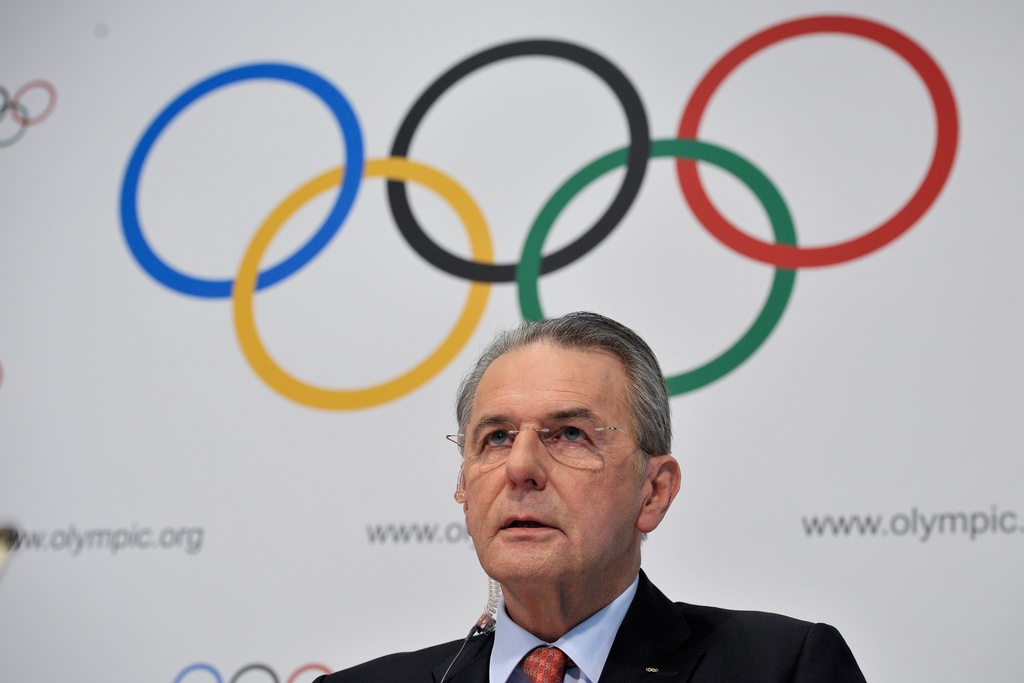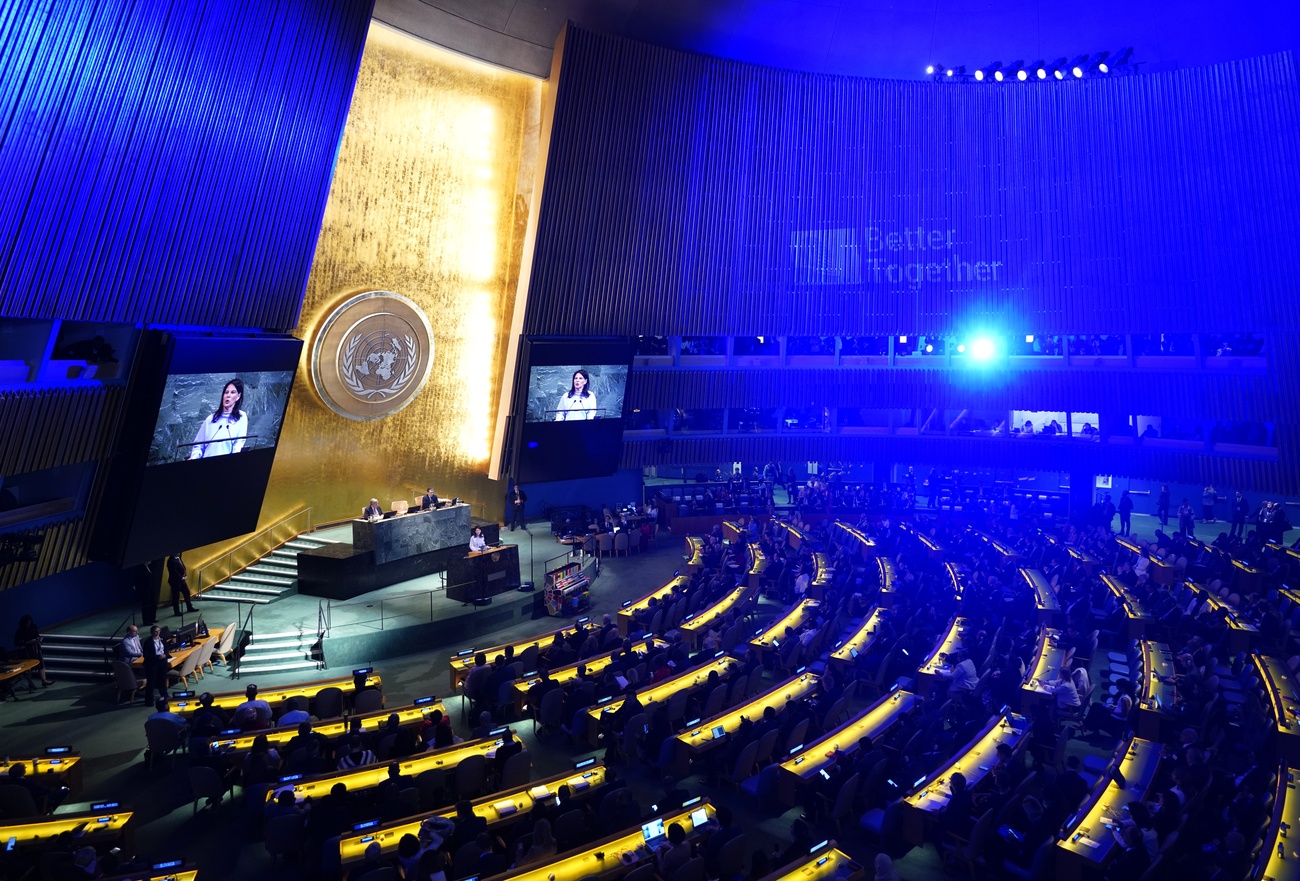
Olympic Committee targets illegal betting

Illegal betting on events is a bigger threat to the integrity of sport than doping, according to Switzerland’s highest placed Olympic official.
swissinfo.ch spoke to Denis Oswald, a member of the executive board of the International Olympic Committee (IOC).
Oswald is part of a working group set up to tackle the “serious problem” of illegal gambling on sporting events.
It is estimated that the global illegal betting industry is worth some $140 billion (SFr128.14 billion) annually. IOC president Jacques Rogge is leading the charge against what he calls a “cancer” which attacks the credibility of sport.
The working group comprised of public officials, sporting authorities and internet gambling operators will deliver its recommendations by the end of the year.
swissinfo.ch: Jacques Rogge has established a “task force” to tackle illegal betting in sport. What is its mission?
Denis Oswald: It is charged with investigating in depth the phenomenon of illegal gambling, which is difficult to get a grip on, and making recommendations. Illegal gambling operations lead to manipulation of events and acts of corruption by sports officials and players. They influence competition results and harm sporting integrity.
swissinfo.ch: Jacque Rogge seems somewhat alarmist talking of a danger to sport. Do you agree with him?
D.O.: Yes. Based on the information we have, the problem is extremely serious. Investigations by Interpol have confirmed that the amounts of money involved are very big. The current threat to the credibility of sport is greater than the doping threat.
swissinfo.ch: Why are criminals attracted to sporting events?
D.O.: By manipulating the competitions, criminals can make enormous amounts of money. Add to that the money laundering. The bets are often used to turn over money earned from organised crime.
swissinfo.ch: Can you assess the extent of the problem?
D.O.: Figures have been suggested but the evaluations are imprecise given the nature of the industry. We are looking at dozens of billions of francs. Sports betting is not new but the arrival of the internet has completely changed the game. It is possible to bet anonymously from anywhere in the world, at any moment, and on any kind of event.
In football for example, it is possible to bet on which goal keeper will touch the ball first or which team will score the first goal.
swissinfo.ch: In which sport is match-fixing the biggest problem?
D.O.: Football has already been affected to some degree. It is a global sport played at an elite level and the possibilities for making profits are enormous. The problem has also affected horse racing, cricket and tennis. Also, as a means of making the fix less obvious, criminals are betting more and more on junior competitions.
swissinfo.ch: Does the issue require the establishment of a world anti-corruption agency similar to the World Anti-Doping Agency?
D.O.: The majority of participants in the working group do not think such a move is necessary. The issue is complex and the legislation varies from country to country. Interpol is confident of having the necessary means to deal with the issue. It’s a matter of capitalising on what we have by creating better lines of communication between sporting bodies and police authorities. Those involved in sport should inform Interpol of any suspicious activity and it will then take the necessary action. To do that will surely necessitate the establishment of a coordinating agency.
swissinfo.ch: If we want to fight corruption in sport, doesn’t there need to be more internal transparency and democracy within large international sporting bodies to set the example?
D.O.: There is certainly room for improvement in this area. But things are not completely opaque, that is a bit of a myth. Of course, a few events have dominated the news recently. The recent cases at Fifa are well out in the open, which shows that the organisation is not that opaque.
And in an ethical context, the behaviour of the journalists from The Sunday Times wasn’t anything to be proud of. Far be it for me to defend the Fifa officials concerned, but there are strict rules of law which cover enticing a person to commit an illegal act. These rules were obviously not respected. So we need to adopt a very careful attitude in relation to these accusations.
Fight. The International Olympic Committee (IOC) began targeting irregular and illegal betting activities in sport five years ago. In 2006, the IOC code of ethics was amended to restrict all Olympic Games participants from betting on Games outcomes. Other measures have followed, including the establishment this month of a working group charged with examining the issue and making recommendations.
Representatives. The working group is composed of some 30 people representing international sports organisations, governments and operators of online betting sites. Four Swiss are amongst them: Defence and Sport Minister Ueli Maurer, Secretary General of the International Basketball Federation Patrick Baumann, European director of the World Anti-Doping Frédéric Donzé, and Denis Oswald, IOC executive board member.
Colossal. According to IOC president Jacques Rogge, illegal betting is worth some $140 billion worldwide annually. The problem is concentrated in Asia where online betting companies turn over an estimated SFr500 million a year.
Born in Neuchâtel in 1947, Denis Oswald was a member of the Swiss national rowing team from 1968 to 1976. He was Swiss champion 13 times.
He took part in the Olympic Games in Mexico (1968), Munich (1972) and Montreal (1976). He won a bronze medal as a crew member of the Swiss boat in the coxed fours event in 1968.
Oswald has been a member of the IOC since 1991. In 2001 he was nominated head of the IOC coordination committee for the Athens Olympics and currently holds the same position for the 2012 London Olympics.
Oswald holds a Chair of Sports Law at Neuchâtel University and is also director of the university’s International Centre for Sports Studies.
(Translated from French by Sophie Douez)

In compliance with the JTI standards
More: SWI swissinfo.ch certified by the Journalism Trust Initiative




























You can find an overview of ongoing debates with our journalists here . Please join us!
If you want to start a conversation about a topic raised in this article or want to report factual errors, email us at english@swissinfo.ch.